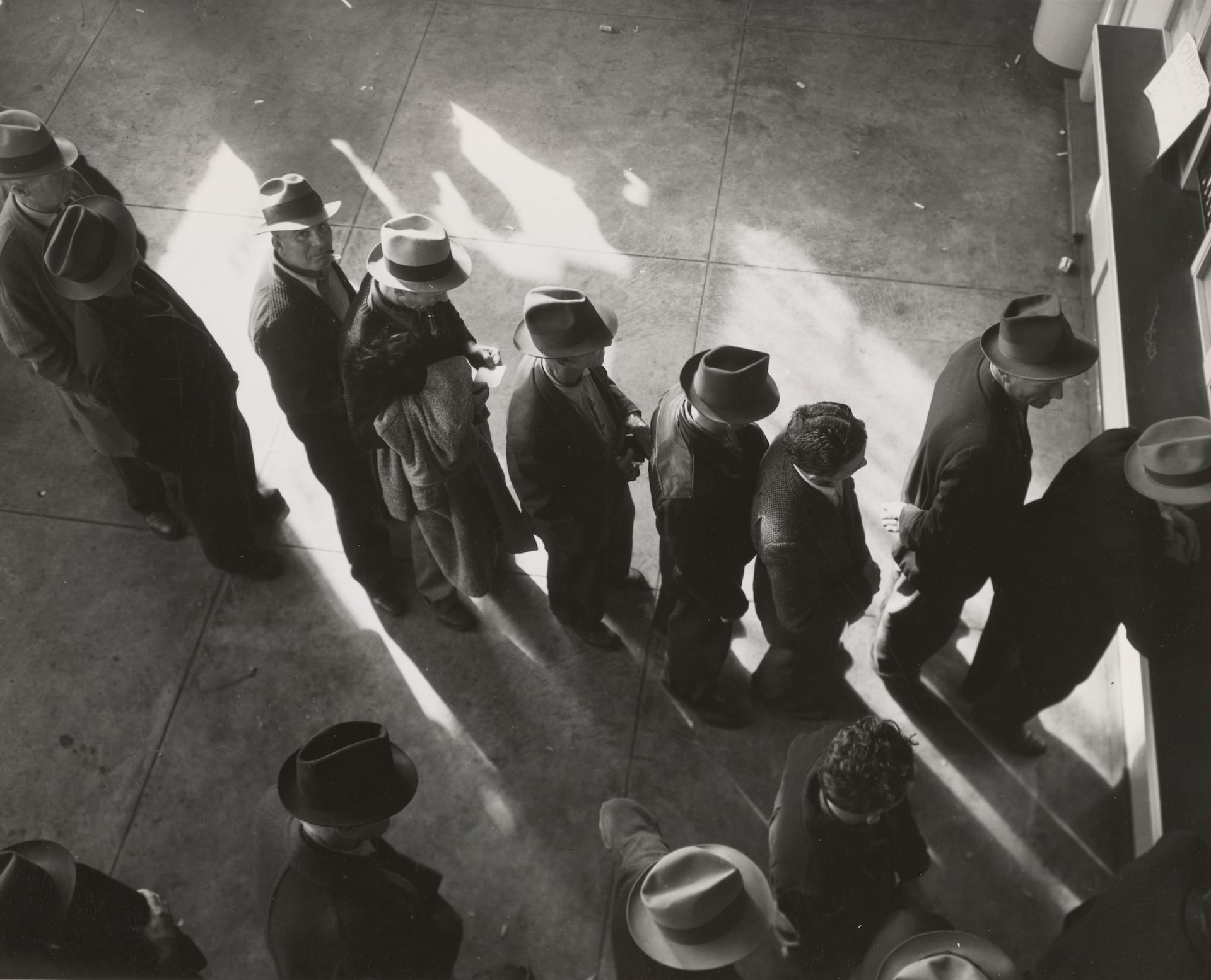Most banks ask borrowers to verify their income, making it more difficult for unemployed individuals to get financing. However, unemployed individuals are among the most vulnerable people financially, and getting extra funds can be critical during an emergency. A loan can act as a bridge that gives an unemployed borrower time to find a job while paying for life’s necessities. It is possible for unemployed individuals to find a loan. We will share the process and key details to keep in mind before accepting a loan.
How Difficult Is It to Get a Loan If You Are Unemployed?
It depends on which loans you try to get. Some lenders do hard credit checks and have debt-to-income requirements, which can make it more challenging to get a loan. Other lenders do not conduct hard credit checks and have fewer requirements. Unemployed borrowers should look for lenders that have fewer requirements, especially ones around income. If you have a good credit score, you will have a better chance of getting the financing you need at reasonable terms.
What Do Lenders Typically Require to Issue a Loan?
Lenders issue requirements that make them feel confident in your ability to repay the loan. They will look at information about your income, credit score, employment history, current debt obligations, and liquid assets. A good employment history could make a lender more willing to provide a loan even if you were recently unemployed. If you are on shaky ground in these areas, you can still get a loan, but you will face a higher interest rate.
Alternatives to Proof of Income to Request a Loan
You can get a loan even if you do not have a salary. Lenders accept multiple alternatives to proof of income that demonstrate you can repay the loan. Here are some of the alternative income streams that can strengthen your loan application:
- Social Security income
- Dividends and capital gains
- Real estate cash flow
- Disability income
- Savings
- An inheritance
- Your spouse’s income
Lenders incur a risk with every loan they write. If you can demonstrate your ability to make the monthly payments, lenders will be happy to provide you with the capital you need.
What Are Instant Loans?
Financial institutions take several days to approve most loans, and even then, they have tough requirements. Instant loans let you bypass these disadvantages with same-day funding and easier requirements. In addition, some instant loan providers do not even conduct a credit check before giving you the funds.
Instant Loans vs. Traditional Loans
Instant loans have lower loan amounts than traditional loans, but borrowers can get approved sooner, even if they have poor credit. Traditional loans have longer wait times and typically require good credit, but they have lower interest rates and more affordable fees. Instant loans have speed and a low barrier to entry on their site, while traditional loans have a price on their side.
Instant Loans You May Qualify for If You Are Unemployed
You do not need a job or the best credit to obtain an instant loan. However, here are some of the choices to consider if you need quick cash.
Emergency Loans
Emergency loans are expedited personal loans that you can only obtain during an emergency. These loans help you get over a short-term hump, but due to their fees and interest rates, it’s best to pay off these loans quickly. Building up an emergency fund makes you less reliant on this type of financing, but if you need the money now, an emergency loan can help.
Payday Loans
Payday loans are one of the most notorious loans in the industry. These loans are very easy to get. These lenders do not ask about your credit score or assess if you can make loan payments. As a result, you can have a high debt-to-income ratio and still qualify for a loan. Payday lenders ask for your identification, bank account information, and a reliable income source. This reliable income source can come from one of the alternative sources we discussed earlier, but payday lenders aren’t too strict about requirements.
The loan’s notoriety comes from its triple-digit annual interest rate and excessive fees. Unfortunately, many borrowers do not have the financial means to repay the loan and can get stuck paying far more than the loan was worth. Therefore, you should only consider payday loans as a last resort. It is even a good idea to ask friends and family for money before you consider getting a payday loan.
Title Loans
Title loans are another instant loan that gives you quick access to capital. While these loans aren’t as bad as payday loans, they aren’t the most friendly ones either. Title loans use your vehicle as collateral. The lender will install a GPS into your vehicle and take a copy of your keys so they can obtain the vehicle if you cannot make loan payments. When you repay the loan, the lender will uninstall the GPS from your vehicle and give you back the extra set of keys.
Title loans have high-interest rates but are not as high as payday loans. In addition, these loans have no credit score requirement and are easy to obtain. However, they are only slightly better than payday loans and are not the best financing option to use if you need extra cash.
Joint Personal Loans
Joint personal loans can provide attractive interest rates and terms for unemployed borrowers, but you can’t get these loans by yourself. You need a co-borrower to join you for this type of financing. Joint personal loans let you utilize the co-borrower’s credit score, income, and other details to get financing. If you know a family member or friend with good credit and a stable income, getting a loan with their help can save you a lot of money.
Not every co-borrower will be on board with this idea since they become liable if the person receiving the loan can’t make payments. Therefore, the lender offers more favorable rates for these loans knowing the person with a higher credit score and stable income will have to bear the burden of the monthly payments if the other person can’t keep up with the monthly payments.
Cash Advances
A cash advance is what it sounds like. You get some cash that you can use right away for a fee and a double-digit interest rate. Of course, cash advances aren’t the best way to borrow money, but if you are deciding between cash advances, payday loans, and title loans, cash advances are your best option.
Credit card companies let you take out a cash advance equal to a predetermined percentage of your credit limit. Credit card issuers will charge a cash advance fee and add the amount to your credit card balance. Borrowers will have to contend with the high APRs on credit cards, but they’re nothing compared to the triple-digit APRs you will find on payday and title loans.
Credit Builder Loans
Credit builder loans are small loans with the sole purpose of building credit. Most of these loans have principals between $500 and $1,000 and a 6-24 months duration. Instead of receiving the loan proceeds right away, you only get the principal after making your monthly loan payments. Some credit builder loan issuers let you access some of the capital upon taking out a loan.
Things You Should Consider When Taking Out a Loan While Unemployed
You may need financing to get through a financial hump and recover from getting unemployed. These funds can provide a bridge that helps you stay afloat while you look for a new job. However, you should consider the following factors before taking out a loan while unemployed.
How Much You Need to Borrow
You will have a higher interest rate on any loan. Financial institutions, credit unions, and online lenders give favorable rates to people with good credit scores and stable incomes. Knowing how much you need before taking out a loan can save you money on interest. Taking out too much money results in unnecessary interest, but taking out too little capital is also bad. If you do not take out enough money the first time, you will have to pay the origination fee and administrative costs for a second loan.
Ensuring You Meet the Requirements
Check a lender’s requirements before you submit a loan application. Most lenders will do a hard credit check, an event that reduces your credit score by a few points. It’s easy to recover from a single hard credit inquiry, but getting several of them can make a bigger dent in your credit score. Only apply for loans where you are confident about your ability to meet the requirements.
Knowing How It Will Affect Your Credit
Taking out a loan will impact your credit score. It can either improve or hurt your credit score depending on what you do with the opportunity, but your score definitely will not remain the same. If a lender does a hard credit check, your score will drop a few points. Making on-time payments for your loan will improve your score and put you in a better position if you need additional financing. Falling behind on your payments will create the opposite effect. Late payments will hurt your credit score, and defaulting is even worse. Your credit is vital for getting financing on good terms. Only take out a loan if you are confident in your ability to pay it back.
Whether It’s Legal in Your State
Each state has different rules about legal ways to obtain financing. As a result, not all instant loans are legal, and some have regulatory scrutiny. Review your state’s requirements before getting an instant loan for the unemployed.
Finding the Right Lender
Not every lender offers instant loans, and some providers have excessive rates and fees. Don’t stop at the first lender you find. Shop around to find competitive loans and discover which ones have the best terms for your financial needs.
Watching Out for Predatory Loans and Lenders
Payday and car title loans are the last two financing options to consider. Unfortunately, many of these lenders have predatory practices that hurt you more than they help. The lure of quick capital with no credit score requirement and minimal income sounds appealing, but high-interest rates and fees can turn these financial products into nightmares. Getting a loan can provide some solace, but it’s better to ask people you know for help or get a side hustle than do business with a predatory lender.
How You Will Repay the Loan
Getting a loan is only half of the battle. You must make consistent monthly payments to stay on top of the loan. Doing so will help you avoid additional fees and build your credit score instead of tearing it down. A new job can provide long-term relief, but a side hustle can help you generate enough income while you wait for the next employment opportunity. Opting for a loan with more years on it will reduce your monthly payments, so it doesn’t take up too much space in your budget.







